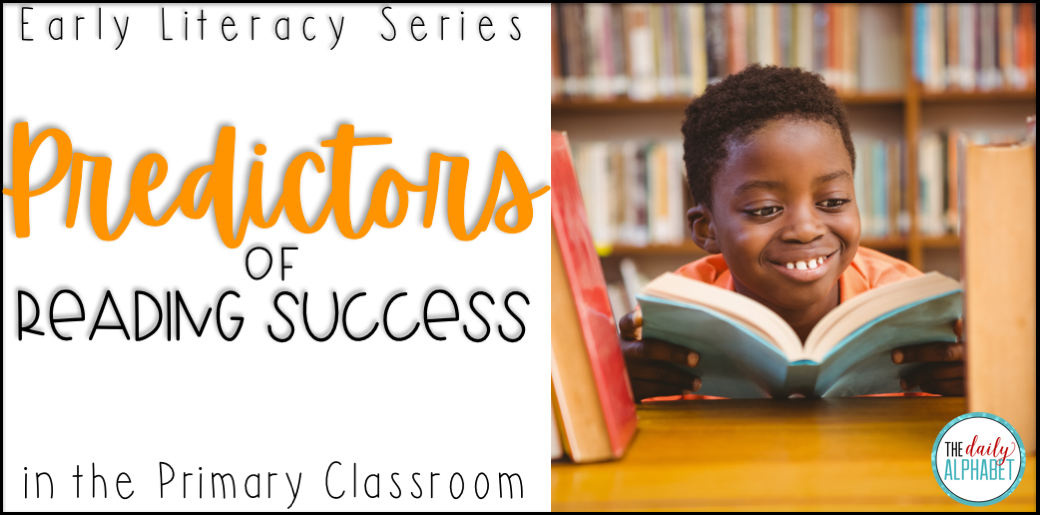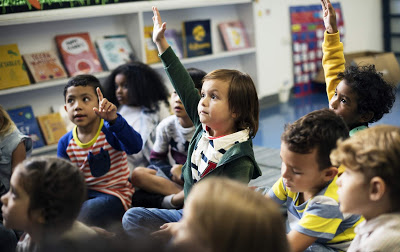
Research has shown time and time again that students must have exposure to repeated positive literacy experiences in order to be successful. There are many things that factor into the reading success of little ones, such as print awareness. They all come to school with their unique backgrounds and it is up to us to fill in their deficits. So let’s dive into some early predictors of reading success.
Knowledge of Letter Names
Letter Recognition is one of the biggest goals of kindergarten. It is also one of the predictors of reading success in a student’s first year of school. When students enter school and they do not have a frame of reference when it comes to letters, some of them can have a steep learning curve ahead. In this case, accuracy is not always king. A student can be accurate in naming the letters, but it is the ease with which they name the letters that we should be looking at. When a student can name the letters of the alphabet with fluency, then they will have an easier time learning all about the sounds that letters make because they already have a frame of reference. If a student spends most of their time figuring out what each letter is, they will have less time and effort available to use other strategies to decode print.
Phonological Awareness
We know that most children begin to develop their sense of phonological awareness as preschoolers, but what is it exactly? It is the ability to think about the sounds in a word, an understanding that words are made up of syllables, sounds, and rhymes. They begin to recognize that words are their own thing (asking what the word bright means), that words can sound the same (pet and wet), and they also become aware of individual sounds and can manipulate them. When a student is well-developed in phonological awareness, then they already have a headstart in knowing how sounds and letters work together in print. When they have this ability, then they are able to begin using sound-letter knowledge effectively in reading and writing. One of the strongest predictors of reading success in first grade and beyond is a student’s level of phonological awareness at the end of kindergarten. If you have students who are struggling in this area, then early intervention is key.
Oral Language
Oral language is the foundation of learning literacy and a predictor of reading success. School provides a language-rich environment, one that is different from the language used at home. It will range anywhere from informal (used at home) to more formal communication (used at school). The development of this oral language is an important part of any successful kindergarten program. So what is oral language? Initially, you would think that it is just the spoken word, but it is also listening and thinking, which is all combined together to give you oral language. The more a student explores language in the classroom, they begin to better understand how to use language for reading and writing.

Another purpose of oral language in the classroom is to learn new information. By the time they have arrived at school, they have already learned to talk. Once they enter our classrooms, they have to talk to learn, in order to be successful. They begin to use what they already know about language to help them make sense of what is written on a page. At this point, they start to make a connection between oral and written language, which is crucial for emergent readers. If you find that you have some students who are struggling with learning to read, take a quick minute to see if they could have a deficit in one of these areas. If they do, then research has shown that these students need explicit instruction in these areas through early intervention. Don’t delay!














